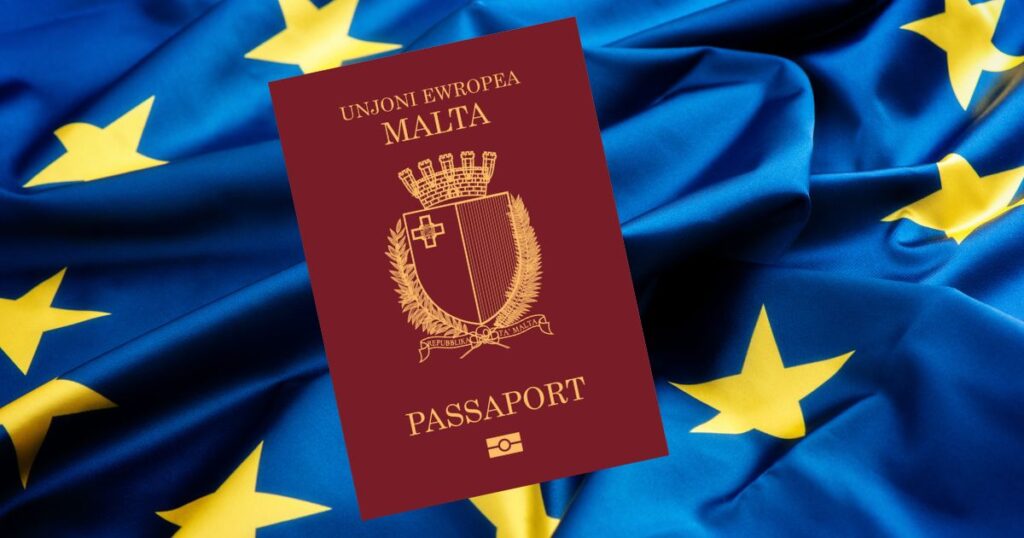The Granting of Citizenship by Naturalisation for Exceptional Services by Direct Investment is regulated by the Granting of Citizenship for Exceptional Services Regulations (S.L. 188.06) which can be summarized as follows:
Main Applicants desirous of obtaining Maltese Citizenship by Naturalization for Exceptional Services through Direct Investment, need to appoint a licensed Agent (in terms of Legal Notice 435 of 2020 – Agents Licence Regulations) and satisfy an eligibility assessment test in order to be authorized by the Minister to submit an application for Maltese Citizenship on the prescribed form.
Individuals who manage to obtain a Maltese Residency Permit may move on to apply for Maltese Citizenship for Exceptional Services through Investment under one of two different paths, as follows:
- Path 1 – they may apply after a 1-year residency period and invest €750,000; or
- Path 2 – they may apply after a 3-year residency period and invest €600,000;
Main Applicants are obliged to either –
- purchase a residential property in Malta for a value of not less that €700,000 or
- undertake a lease of a residential property in Malta for a minimum annual rent of €16,000 for a minimum period of five years from the date of issue of the certificate of Citizenship;
Proof of Residence
Provide a proof of residence in Malta for a period of thirty six (36) months, provided that this period may by exception be reduced to a minimum of twelve (12) months, subject to an exceptional direct investment (of six hundred thousand euro [€600,000] and seven hundred fifty thousand euro [€750,000] respectively), to be effected prior the issue of the certificate of naturalisation;
Donations
Main Applicants should also make a donation of at least €10,000 to a registered philanthropic, cultural, sport, scientific, animal welfare or artistic nongovernmental organization;
Quotas
The number of certificates granting Maltese Citizenship by Naturalization for Exceptional Services through Direct Investment will not exceed 400 per annum. The total accumulated number of successful Applicants (excluding Dependants) has been set at 1,500;
Decision Time
The IIP Regulations stipulate that the Agency has the obligation to communicate the decision within 120 days from the date of application
Community Malta Agency
The Community Malta Agency (Establishment Order) established the Community Malta Agency as the Agency responsible to carry out, on behalf of the Minister responsible for Maltese Citizenship, the processing of applications for a certificate of Citizenship by Naturalization submitted either for Exceptional Services through Direct Investment in the economic and social development of the Republic of Malta. the new Regulations also establish a five-year period during which the Agency may keep monitoring successful Applicants. Act XXXVII of 2020 published on 31st July 2020, brought about various amendments to a number of articles of the Maltese Citizenship Act, Cap.188. The amendments included the repealing of the Regulations pertaining to the Malta Individual Investor Programme and the winding up of the Malta Individual Investor Programme Agency.
Publishing of names
Sub-Article 14(2) of the IIP Regulations (LN 47/2014) states that the Minister (responsible for Citizenship) shall, every year, publish in the Government Gazette the names of all persons who, during the previous twelve calendar months, were granted Maltese Citizenship by registration or naturalization, including those persons who were granted Maltese Citizenship under the Programme.
Health insurance
Evidence of a global health insurance policy for the Main Applicant and Dependants if any, is another obligation required by the Regulations.
Oaths
The Oath of Allegiance to be the definite proof that a successful Applicant has completed the IIP process and has become a Maltese Citizen.
Vetting
The vetting exercise is spread throughout the whole year, and it covers all applications processed by the Communita Malta Agency (CMA). This Office screens all approved, rejected and withdrawn applications. During each vetting session, OR-GCES Officials go through the voluminous documentation pertaining to each application pack which is analysed in three stages, i.e. the application stage, the vetting stage, and the post-approval stage. The focus is on the most critical parts of the application, namely the eligibility of the Main Applicant and the Dependants (whenever Dependant/s were included in the application), and whether each Applicant satisfied all pre-requisites prior to being granted Maltese Citizenship. The application stage is vital as it is the stage where a portfolio of the Main Applicant is built. Checks carried out at Application Stage.
At the vetting stage, the CMA carries out the due diligence process. Initially, the CMA carries internal checks by screening international databases, obtaining clearances from police authorities, checking completeness and correctness of applications, and by outsourcing due diligence exercises where at least two reports are commissioned from two separate international companies. Once all the information is gathered, the Due Diligence Team corroborates the information and formulates an opinion. Subsequently, the findings are documented systematically addressing the different areas evaluated during the due diligence process. The latter together with the proposed opinion formulated by the Agency is then communicated to the Minister who in turn decides whether the application is approved or rejected. The decision taken by the Minister is then communicated to the Main Applicant’s Agent.
All Applicants included in each application, are required to visit a medical authority or practitioner and provide a medical evaluation report. In the meantime, CMA liaises with the local Police Force, where clearance (or otherwise) is obtained from the police authorities following thorough checks.
According to the IIP Regulations, Applicants would be eligible to obtain Maltese Citizenship if they satisfy a number of criteria, including having a clean criminal record and not being subject to criminal investigation, not being involved in cases that may cause disrepute to Malta, and not being a potential national security threat to Malta. Additionally, Applicants are considered negatively in cases where they are found to have included false information in their application forms. Primarily, CMA gathers information about Applicants from the submitted forms and from the supporting documentation provided with each application. Subsequently, CMA commissions 2 external due diligence reports from international firms which carry out the task autonomously. Furthermore, it obtains information from international databases, and carries out standard checks through law enforcement agencies. Applicants are also obliged to provide original police conduct certificates from countries in which they have resided. All the aforementioned checks allow CMA to establish the Applicants’ identities, business and corporate affiliations, source of funds and source of wealth, media vulnerability, and criminal and / or financial charges.
The 4 tier checks were always carried out as follows: searches in international databases, clearance from local police authorities, checks and verifications of the application and the supporting documents, and commissioning of reports from external due diligence companies. In various cases, CMA asked for additional documentation or clarifications in order to determine the Applicants’ eligibility. All data and information gathered by CMA was corroborated and analysed through the use of an internal risk matrix which ensures that every application is examined in a consistent manner, and ineligible Applicants are distinguished from those who satisfy all the requisites. It has to be highlighted that the due diligence checks do not focus solely on the Main Applicants, but also on all the Dependants included in each application, Benefactors, and other stakeholders who are business-wise or socially associated with the Applicants.
CMA has collaborated with the FIAU Agency. In cases when the Agency encountered applications where there was a suspicion of money laundering activities, details of the Applicant and Agent involved were spontaneously reported to the FIAU.
The Agency (CMA) had further strengthened this obligation by introducing an additional measure where Main Applicants who opt for a leased property are required to provide an architect’s valuation report of the leased property together with the leasing agreement of the property. Even though the architect’s valuation report of the leased properties is not a legal obligation, during the vetting sessions, the Regulatory Officers check that this document is available and the valuation tallies with the threshold established by the IIP Regulations.





